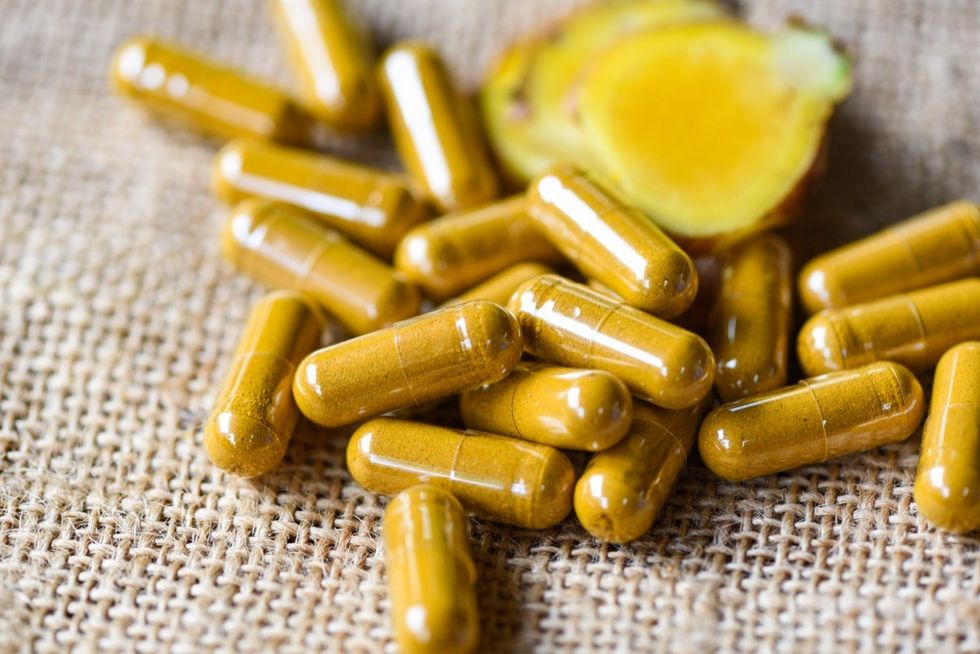3 Foods That Could Be Causing Dangerous Liver Damage, Doctor Warns
Think of your liver like a Brita: The organ, the largest in your body, filters out harmful toxins and waste, as well as old red blood cells. However, it also performs numerous functions that tend to go unnoticed, including producing the bile that helps your body digest food, metabolizing proteins, carbohydrates, and fats, and aiding in blood clotting, according to Cleveland Clinic.
You're probably well aware that smoking and drinking can disrupt these vital functions, but according to Saurabh Sethi, MD, a board-certified gastroenterologist and interventional endoscopist, what you eat can also negatively impact your liver health. Read on to learn about the three foods that could be causing dangerous liver damage.
RELATED: Eating These 12 Foods Can Improve Your Liver Health, Doctors Say.
1. Fructose-heavy foods 1. Sugary cerealsShutterstock
1. Sugary cerealsShutterstockIn a TikTok video, Sethi explains that, as a liver specialist, he would avoid three specific foods, the first of which is anything fructose-heavy.
"Fructose is commonly found in sugary drinks and processed snacks, and is handled almost entirely by the liver," he states.
As Harvard Health explains, the average American diet used to consist of roughly 15 grams daily of fructose, also known as fruit sugar, from natural fruits and vegetables. However, they note, "Today we average four or five times that amount, almost all of it from the refined sugars used to make breakfast cereals, pastries, sodas, fruit drinks, and other sweet foods and beverages."
Sethi says this can lead to fat buildup in the belly, increasing the risk of fatty liver disease, which occurs when too many fat cells are stored in your liver.
To that point, a 2008 study found that excessive dietary fructose consumption "significantly" raised the risk of fatty liver disease.
Moreover, a 2020 study concluded that excessive intake of fructose causes the intestinal barrier to deteriorate. "This barrier prevents bacteria and toxins from leaking into the bloodstream," thereby entering the liver, contextualizes the National Institutes of Health (NIH).
2. Industrial seed oils #4. Sunflower OilShutterstock
#4. Sunflower OilShutterstockNext, Sethi says he avoids industrial seed oils high in omega-6 fats, such as soybean oil, corn oil, and sunflower oil: "When consumed in excess, they can fuel inflammation and oxidative stress, which are both harmful for the liver."
Registered dietitianKimberly Gomer, MS, RD/LDN, previously explained to Best Life that "these seed oils are unstable, oxidize easily, and contain harmful additives. They are derived from GMO's (Genetically Modified Crops)."
"When these oils are repeatedly heated, even more toxic byproducts are created," she added. "They also aggravate the gut by being pro-inflammatory and can be responsible for bloating/gas symptoms."
RELATED: Eating Chicken Could "Significantly" Raise Your Risk of Death—If You Have It This Often.
3. Fruit juice Doctors Warn Juice Cleanses Can Wreck Your Microbiome in Just 3 DaysShutterstock
Doctors Warn Juice Cleanses Can Wreck Your Microbiome in Just 3 DaysShutterstockLast on Sethi's list is fruit juice.
"Even natural, 100-percent juices pack a high fructose load, and no fiber," he notes. "This combo causes quick blood sugar spikes, which can drive fat storage in the liver."
In fact, one recent study found that doing a juice cleanse can wreak havoc on your microbiome in just a few days.
As Best Lifeexplained at the time, "Juicing removes most of the insoluble fiber found in whole fruits and vegetables while concentrating natural sugars. The delicate balance of bacteria in the gut and mouth rely on fiber to thrive. With a lack of fiber, these new findings suggest juice cleanses can wreak havoc on the microbiome in a short period of time."
4. A popular supplement can also damage your liver. 6 Popular Supplements Can Damage Your Liver, New Research ShowsShutterstock
6 Popular Supplements Can Damage Your Liver, New Research ShowsShutterstockBest Life recently reported on a growing body of research that suggests turmeric supplements can cause liver toxicity as well as hepatitis, a condition that results from inflammation in the liver.
The supplements are especially dangerous when they contain black pepper, since this ingredient significantly increases the body's absorption of turmeric, leading to unhealthy levels in the body.
A 2024 study identified six herbal supplements that can potentially lead to liver damage. Turmeric topped the list, followed by green tea, ashwaganda, Garcinia Cambogia, red yeast rice, and black cohosh.